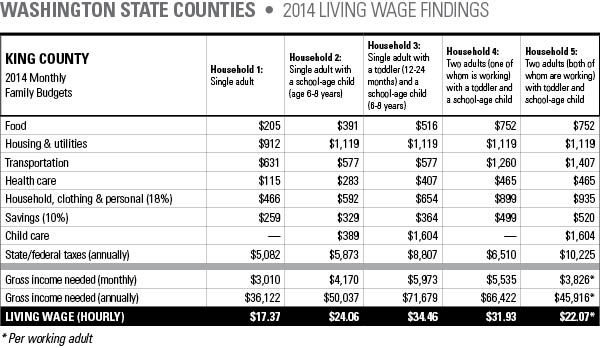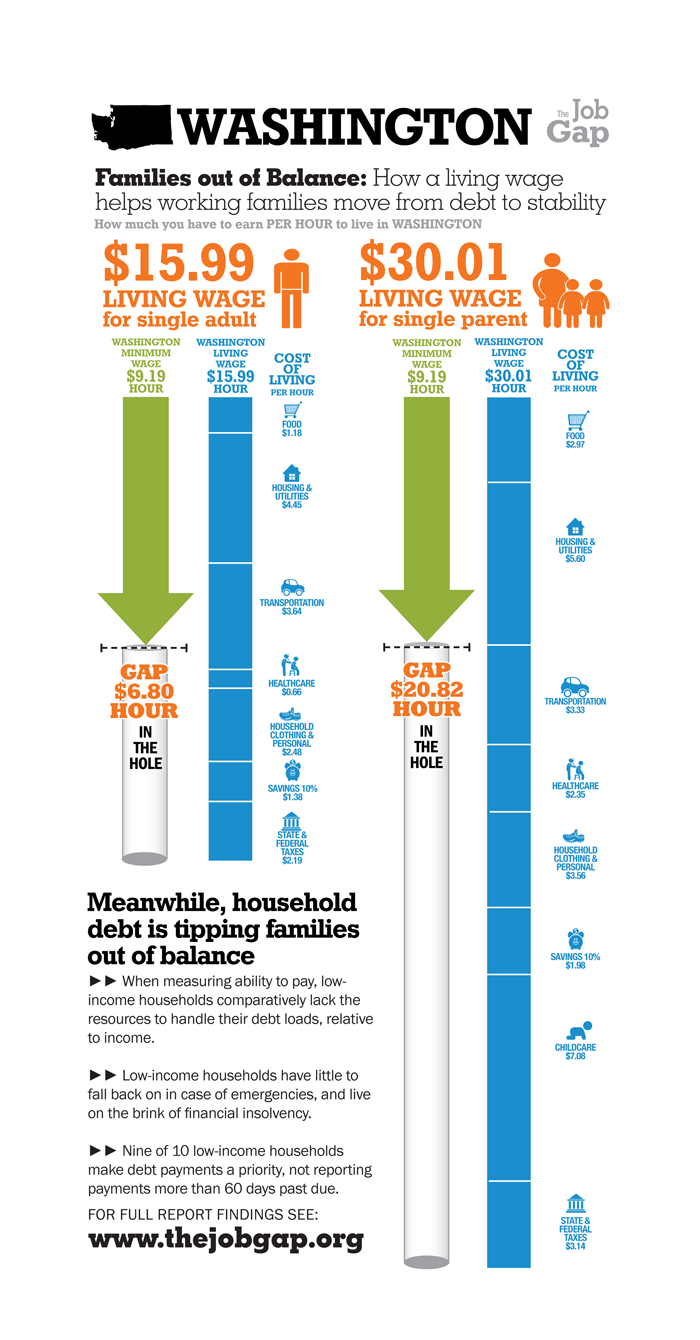On the heels of the historic passage of Seattle’s $15 minimum wage, a King County Council committee will be voting next week on a living wage ordinance that would apply to county employees and contractors for broader King County.
The Alliance testified at a Council committee hearing on Sept. 2 calling for adoption of the legislation, which cites Alliance living wage data. King County has 2 million residents and includes the city of Seattle.
In our testimony, the Alliance presents our newest living wage findings, released just last month. The report, released with Washington CAN!, finds that the hourly wages for full-time workers needed to make basic ends meet in King County ranges from $17.37 an hour for a single individual to $34.46 for a single adult with two children.
The county ordinance sets a living wage on par with Seattle’s recently adopted $15 minimum wage, which an Alliance analysis previously found to still fall short of meeting basic needs.
In that context, we believe the county ordinance to be modest when compared to actual living needs for workers.
View our testimony here:
We also stress the importance of remembering why the legislation was introduced in the first place: to help struggling families facing growing income inequality.
The data paints a terrifying picture: Families are overwhelmed by suffocating debt loads and are forced to confront impossible balance sheets. In our national family debt study, we find that, for every dollar in non-mortgage total debt, low-income households have, on average, $15.64 in income. Higher-income households, meanwhile, have $32.42, more than twice the low-income group.
Meanwhile, as families struggle to gain access to actual living wages, they are forced to make excruciating decisions on which basic necessities to cut.

This ordinance, which will already fall short of ensuring that families meet basic needs, is a modest step in the right direction for wages that actually meet living standards. Further compromises to this legislation would only serve to undercut this legislation’s ability to impact growing income inequality.
